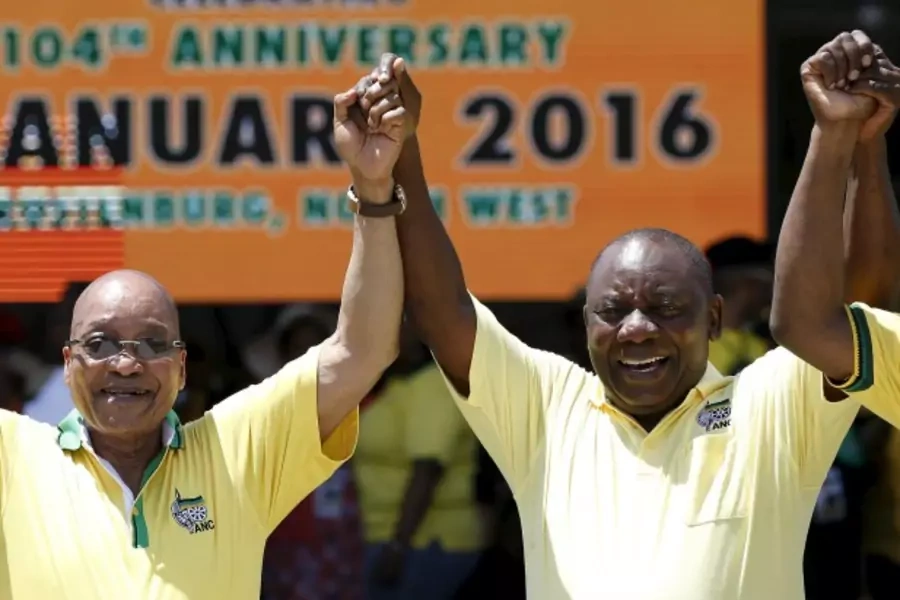More on:
Everybody loves a horserace among political personalities. South Africa is no different. The December 2017 African National Congress (ANC) leadership contest is commonly seen as a race between Deputy President Cyril Ramaphosa, the a reformer with an urban constituency, and Nkosazana Dlamini-Zuma, President Zuma’s ex-wife and potential protector of his patronage networks. A possible dark horse is Zweli Mkhize, ANC party treasurer, who has been identified as a likely compromise candidate. There are also suggestions of compromise arrangements, such as Ramaphosa accepting Dlamini-Zuma as deputy president of the party or vice versa.
In a thoughtful piece, Stephen Grootes suggests that the ANC leadership race is more than a matter of personalities, and fall out from it poses a threat to the ANC continuing in its present form. He observes that each time there has been a leadership struggle within the party – in 2009 and 2014 – some of the losers left the party. In 2009, the vanquished supporters of Thabo Mbeki organized the Congress of the People. In 2014, opponents of Jacob Zuma led by Julius Malema organized the Economic Freedom Fighters. Grootes raises the specter that the December 2017 party election might result in much larger secession of defeated leaders, because the stakes are much higher.
Ramaphosa is seen as the candidate of ‘good government’ and ‘reform.’ Dlamini-Zuma is the candidate of the status quo – a patronage-driven political system. Grootes accurately notes that for many ANC operatives, politics and the resulting patronage is all they have ever known. A Ramaphosa victory could leave them out in the cold and Jacob Zuma subject to prosecution for corruption. That faction will do anything to stop Ramaphosa. On the other hand, a Dlamini-Zuma victory would accelerate voter disaffection from the party – and the party knows that. Grootes suggests that should she win, Dlamini-Zuma is by personality is simply incapable reconciling the “losers.” Ramaphosa, however, might have the political skills to do so.
Given the realities, Grootes suggests that the possibility of a compromise is “actually rather small.” Though, if a compromise is reached Mkhize is often seen as a middle ground candidate. Many outsider’s view him as in the same cloth as Rampahosa, and a possible ‘good government’ candidate. However, he also appeals to much of the ANC voter base as he is a Zulu, like the Zuma’s. That ethnicity is about a quarter of South Africa’s population and has been a crucial part of the ANC voter base, though it is unclear whether that is still true.
Observers have long seen the possible splintering of the ANC as leading to a restructuring and realignment of South African domestic politics. Many see electoral politics emerging from such an alignment as similar to that of European and other democracies, with one cluster of parties on the right, one in the center, and one on the left. However, other alignments are possible. One might be a cluster of parties that represent urban interests, and another that is based in the rural areas.
More on:
 Online Store
Online Store
